Introduction
Chime vs Cash App: two of the most popular money apps available today but they’re designed for very different purposes.
Chime functions more like a digital bank. It offers features to help you manage your money, avoid traditional banking fees, automate savings, and even build credit. Cash App, on the other hand, is centered around peer-to-peer payments, instant transfers, and investing in stocks or Bitcoin.
If you’re trying to decide between them, the right choice depends on what you want from your money app. Whether you’re looking to get paid early, build your credit, or simply send money to friends, this guide will walk you through the real differences and help you figure out which one fits your financial goals best.
Key Takeaways
Chime vs Cash App: Which Fits Your Financial Lifestyle
- Chime is a mobile banking platform offering checking, savings, and a credit builder account designed for long-term money management and financial health.
- Cash App is a payment app with peer-to-peer transfers, limited banking features, and built-in tools for investing and Bitcoin trading.
- Chime is better for avoiding fees, automating savings, and building credit — especially if you’re managing debt or trying to improve your score.
- Cash App is better for sending money quickly, splitting bills, or dabbling in crypto and stocks.
- Many users benefit from using both apps together — Chime for managing income and spending, and Cash App for fast transfers and lightweight investing.
Disclaimer: This site contains affiliate links. If you make a purchase, we may earn a commission at no extra cost to you.
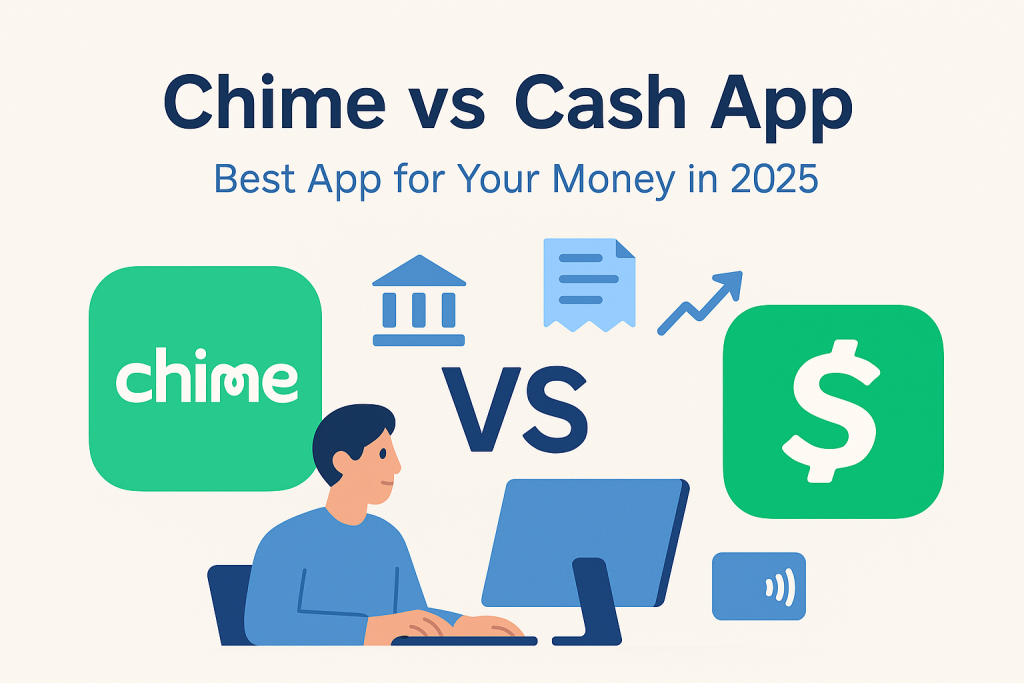
Chime vs Cash App: What’s the Core Difference?
Chime and Cash App may both live on your phone, but they serve very different roles in your financial life.
Chime is a mobile banking platform. It offers checking and savings accounts, early direct deposit, and a credit-building program all without monthly fees or overdraft charges. It’s designed to replace your traditional bank, helping you manage money day-to-day, avoid common banking fees, and improve your financial health.
Cash App, on the other hand, is a peer-to-peer payment app. It started as a way to send and receive money instantly, but now includes extras like a debit card, basic investing, and Bitcoin trading. It’s not a full bank replacement, it’s more about quick transactions and convenience.
Here’s the simplest way to think about it:
- Choose Chime if you want a full-service banking experience, better control over your income, and tools to help you save or build credit.
- Choose Cash App if you just need to send money fast, pay someone back, or try out low-stakes investing from your phone.
Next, let’s look at how they stack up side by side.

Chime vs Cash App: Feature Comparison
Here’s how Chime and Cash App compare across the features that matter most when choosing a financial app:
📊 Feature Breakdown
✅ Chime is stronger for banking, saving, and building credit.
✅ Cash App is stronger for peer-to-peer transfers and investing.
One isn’t better than the other across the board — it depends on how you manage your money.

Chime vs Cash App: Key Differences Explained
1. Banking Experience
Chime is designed to function like a real bank and for most users, it replaces one. You can set up direct deposit, pay bills, withdraw cash at ATMs, and track spending in a single dashboard. It even offers savings automation and credit-building features.
Cash App is not a bank. It started as a payment app and has added financial features over time, but it doesn’t offer checking or savings accounts in the traditional sense. There’s no budget tracking, no automatic savings, and no credit tools.
Bottom line: If you’re looking for a bank alternative, Chime wins. If you just need a way to send or receive money quickly, Cash App works.
2. Credit Building and Debt Management
Chime offers a Credit Builder account a secured credit card that helps users improve their credit score over time by reporting on-time payments to all three major credit bureaus. There’s no credit check, no interest, and no annual fee.
Cash App doesn’t report to credit bureaus and doesn’t offer any tools to help with debt reduction, score improvement, or credit-building.
Bottom line: If building or rebuilding credit is your priority, Chime is clearly the better choice.
3. Fees and Transfers
Chime is built to be fee-free: no monthly fees, no overdraft charges, and access to a wide ATM network. The only fees typically come from using out-of-network ATMs or expedited services.
Cash App also avoids monthly fees but charges for instant transfers to your bank account (usually 1.5%) and adds fees to some crypto and investing transactions.
Bottom line: For low-cost banking, Chime is better. For fast, flexible transfers, Cash App has the edge.
4. Saving and Budgeting Tools
Chime includes basic automation tools: it can round up your purchases and transfer the difference to savings, or auto-transfer a percentage of each paycheck. These small features make it easier to build habits and grow savings passively.
Cash App doesn’t offer saving or budgeting tools. It’s built for transactions, not long-term money management.
Bottom line: If you’re trying to improve your saving habits, Chime provides more support.
5. Investing and Extra Features
Chime keeps it simple. There’s no investing, crypto, or market tools just banking and credit features.
Cash App includes basic investing in stocks and Bitcoin, right inside the app. You can buy fractional shares or crypto with small amounts, making it appealing for casual investors.
Bottom line: If you want to try investing or buy Bitcoin easily, Cash App offers more flexibility.
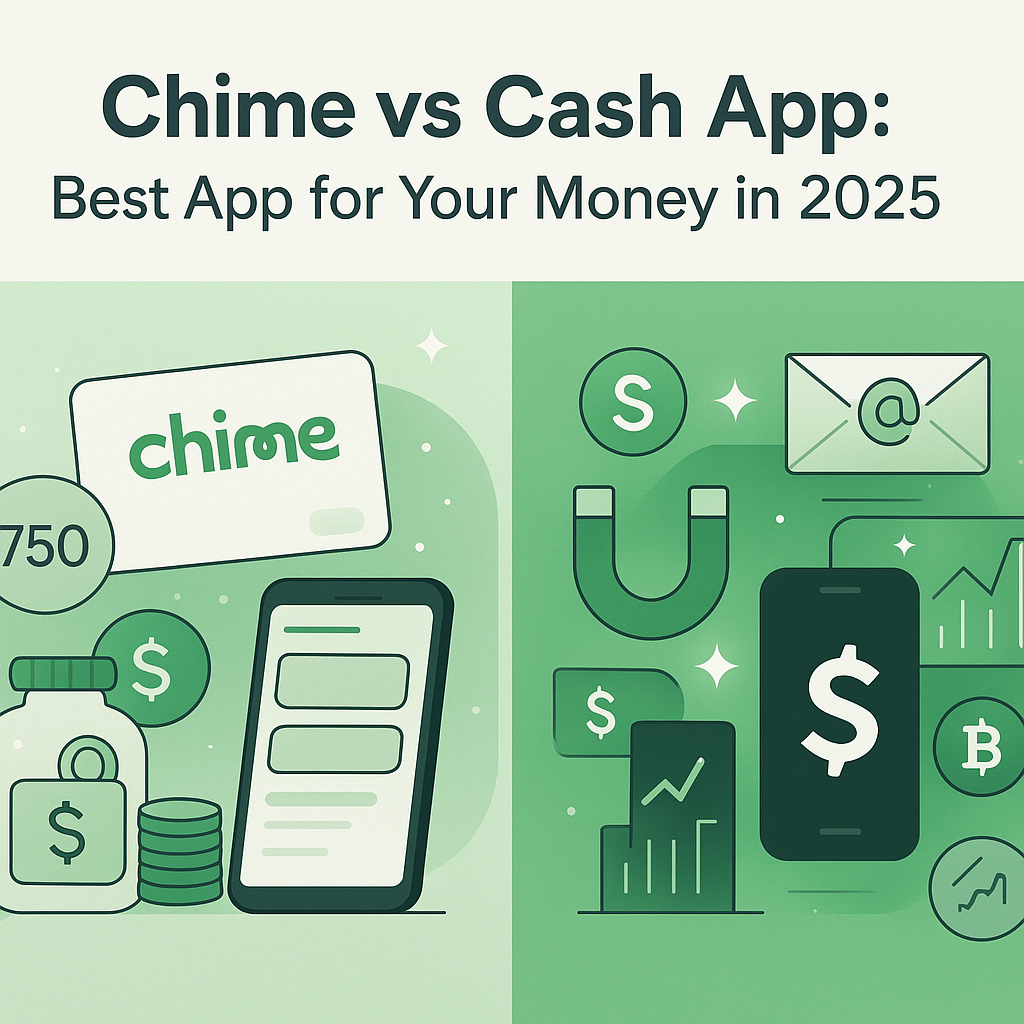
Chime vs Cash App: Which One Wins for Your Needs?
Both Chime and Cash App have millions of users and for good reason. But while they may seem similar at a glance, they’re built for completely different financial goals.
So instead of asking “Which is better?” the real question is:
Which one is better for what you’re trying to do with your money?
Here’s a detailed, real-world comparison across key use cases to help you make the best decision.
1. Getting Paid Early
Winner: Chime
Chime was one of the first platforms to popularize early direct deposit getting you access to your paycheck up to two days early. This feature can be a game-changer if you’re living paycheck to paycheck, trying to avoid late fees, or managing tight cash flow.
Cash App supports direct deposit, but early payment isn’t as consistent or promoted as a feature. It’s functional, but not optimized for paycheck management.
Best for: Employees, gig workers, or anyone needing faster access to income.
2. Sending and Receiving Money Instantly
Winner: Cash App
Cash App is built around peer-to-peer (P2P) payments. It’s fast, simple, and ideal for everyday transfers splitting rent, paying friends back, or receiving quick payments. The interface is frictionless, and the funds are often available within seconds.
Chime doesn’t have its own P2P system. You can transfer money out, but it’s not optimized for rapid user-to-user payments like Cash App is.
Best for: Fast, casual payments between friends, freelancers, or family.
3. Building or Rebuilding Credit
Winner: Chime
Chime’s Credit Builder card is one of the few credit tools in the fintech space that actually works without the catch. It’s a secured card that helps users build credit by reporting monthly payments to all three major bureaus with no credit check, no interest, and no annual fee.
Cash App doesn’t offer any way to build credit. It doesn’t report payments and has no borrowing or credit-focused tools.
Best for: People with bad or no credit who want to improve their score without taking on risky debt.
4. Avoiding Banking Fees
Winner: Chime
Chime is built around eliminating traditional banking fees no overdraft charges, no minimum balance fees, and access to 60,000+ fee-free ATMs nationwide. For users who’ve struggled with surprise fees from big banks, this is a huge benefit.
Cash App doesn’t charge monthly maintenance fees either, but you’ll see fees for instant transfers (typically 1.5%) and ATM withdrawals unless you meet certain deposit requirements.
Best for: Anyone trying to stay fee-free, especially lower-income or fee-sensitive users.
5. Saving and Budgeting Tools
Winner: Chime
Chime includes tools like automatic round-up savings (transferring spare change from purchases into savings) and automatic paycheck transfers into a savings account. These help build financial habits that stick.
Cash App does not offer any form of budgeting or saving automation. It’s not designed for long-term financial planning just fast transactions.
Best for: Anyone trying to automate saving or build financial discipline.
6. Buying Stocks or Bitcoin
Winner: Cash App
Cash App offers built-in investing for both stocks and Bitcoin, right inside the app. It’s designed for beginners and casual investors who want to try investing in small amounts without opening a brokerage account.
Chime doesn’t offer any investing tools. If you want to grow wealth through the market, you’ll need a separate app or platform.
Best for: Users interested in experimenting with stocks or crypto, especially younger or first-time investors.
7. Replacing Your Bank Entirely
Winner: Chime
Chime was built to replace traditional banks and for many users, it does. It includes all the core services you expect from a bank: checking, savings, a debit card, direct deposit, bill pay, and FDIC insurance through its partner banks.
Cash App is not a bank and doesn’t try to be. It’s an accessory to your financial life, not a foundation.
Best for: Anyone ready to ditch their bank and manage everything from their phone.
8. Simplicity and Speed for Everyday Use
Winner: Cash App
Cash App is light, fast, and user-friendly. You don’t need to set up accounts or learn a system, it’s ready to use almost immediately. For people who just want a simple way to send money or pay with their phone, it’s perfect.
Chime is more robust, but with that comes more setup and features that aren’t useful unless you’re managing money more actively.
Best for: Quick use cases, casual spending, or users who don’t want a full banking experience.
🏆 Chime vs Cash App: Scorecard
✅ Chime wins if your priority is banking, credit-building, and saving.
✅ Cash App wins if you want instant transfers, investing, and casual money movement.
Neither is strictly “better” — the right choice depends on your lifestyle and financial goals.
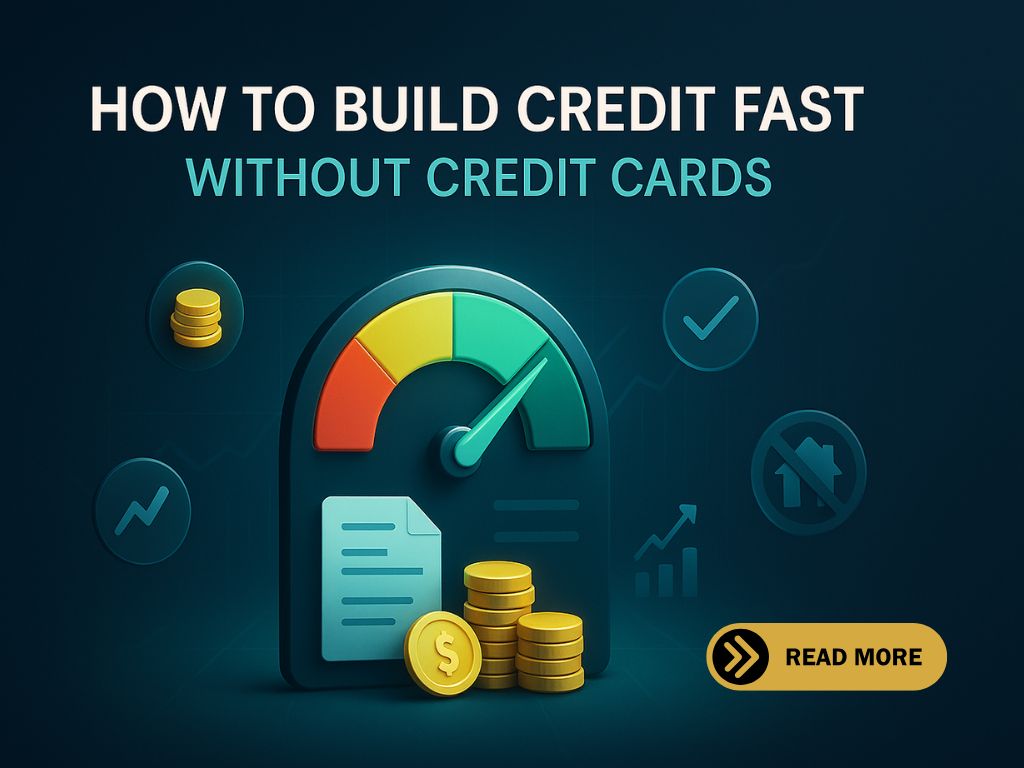
Can You Use Both Chime and Cash App Together?
Yes and in many cases, using both Chime and Cash App together is actually the most flexible and effective way to manage your money.
Chime gives you structure and long-term tools like early direct deposit, savings automation, and credit building. Cash App gives you speed and convenience for instant payments and investing.
Together, they cover both sides of your financial life:
- Chime for managing income, saving, and improving credit
- Cash App for paying people quickly or experimenting with crypto and stocks
How to Use Them Together
- Connect your Chime account to Cash App: You can link your Chime debit card or routing/account number inside Cash App to move money between the two.
- Get paid through Chime, spend through Cash App: Use Chime to receive paychecks early, then transfer small amounts to Cash App for daily spending or investing.
- Use Chime to protect your credit score: Pay bills, automate savings, and build credit while keeping your Cash App balance for more casual spending.
- Keep spending and saving separate: This setup can help you control impulse purchases by using each app for a specific purpose.
Pro tip: Since both platforms are mobile-first, managing them together is seamless just make sure to keep your budgets and balances visible in both.
When It Makes Sense to Combine
- You want speed + structure in your money system
- You’re working to build credit but still want investing flexibility
- You want to avoid bank fees but still send money instantly
- You like using multiple apps for different goals and want to stay in control

🟢 Chime vs Cash App: Pros & Cons at a Glance
When comparing Chime and Cash App, the best way to understand their differences is to look at their strengths and weaknesses side by side. Each app is built for different goals — Chime focuses on full-service digital banking, while Cash App prioritizes speed, transfers, and lightweight investing.
Chime: Pros & Cons
Cash App: Pros & Cons
🟢 Chime is best if you want a banking alternative with credit tools.
⚫ Cash App is best if you need fast transfers + investing features.
Many users benefit from using both together: Chime for paychecks and savings, Cash App for payments and investing.
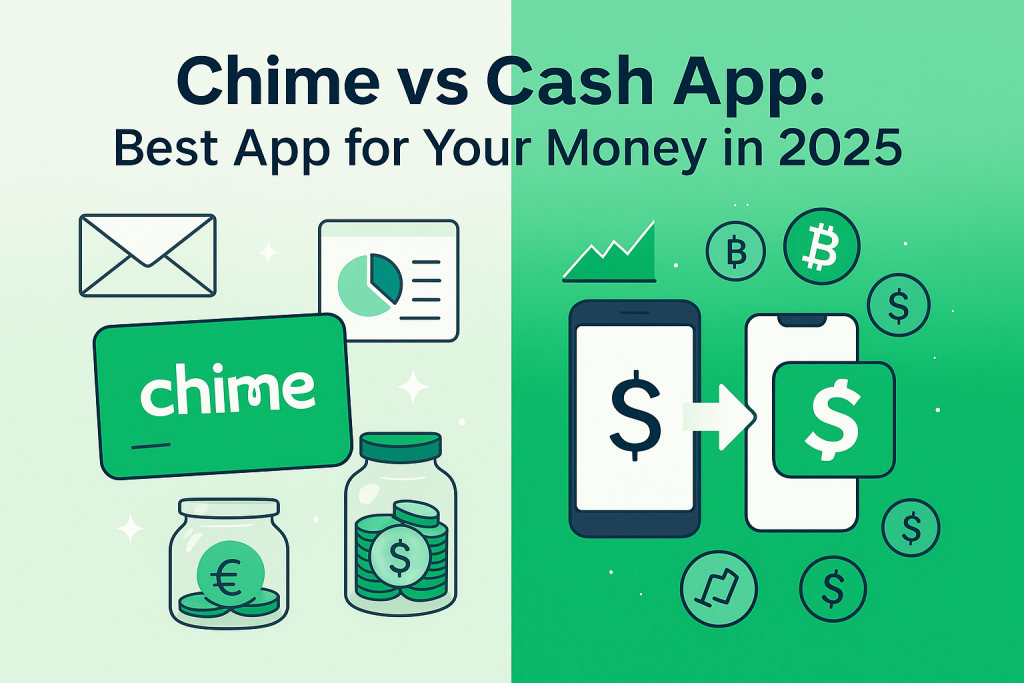
Conclusion: Choose Based on What You’re Really Solving For
The truth is, Chime and Cash App aren’t competitors, they’re tools built for different purposes. One isn’t universally better than the other. It all comes down to what you need your money app to do.
If you’re trying to take control of your finances get paid reliably, save automatically, and build your credit, Chime gives you a real banking alternative with zero fees and long-term benefits.
If you want speed, simplicity, and the flexibility to send, receive, or invest money on the go, Cash App is one of the most intuitive options out there.
And if your goal is to be smarter with money across the board?
Using both may be the most strategic move.
You could:
- Get paid early through Chime
- Build credit while avoiding overdraft fees
- Use Cash App for fast payments and lightweight investing
The best financial setup is the one that matches your habits and supports your goals not someone else’s. And now, you have the clarity to choose with confidence.
Still deciding? Ask yourself:
- Do I need to build credit or just send money fast?
- Am I replacing my bank or complementing it?
- Do I want automation and structure or speed and simplicity?
When you know what you need, the right app becomes obvious.
Also worth reading: SoFi vs Chime: Side-by-side breakdown.
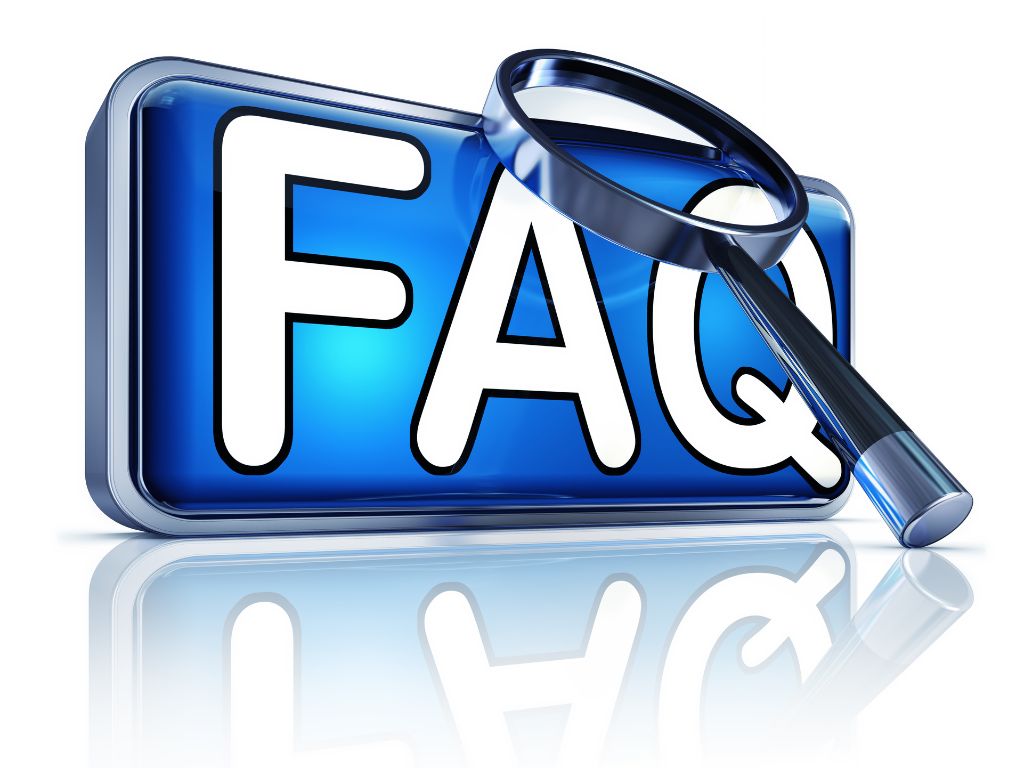
FAQs: Chime vs Cash App
1. Can I link Chime to Cash App?
Yes. You can link your Chime account to Cash App by adding your Chime debit card or using your Chime routing and account number. This allows you to transfer money between the two apps easily.
2. Does Cash App help build credit?
No. Cash App does not offer any credit-building tools and does not report to credit bureaus. If credit improvement is important to you, Chime’s Credit Builder account is a better option.
3. Is Chime a real bank?
Chime is not a traditional bank, but it provides banking services through FDIC-insured partners like The Bancorp Bank and Stride Bank. It offers checking and savings accounts, direct deposit, and debit cards just like a typical bank, but with fewer fees.
4. Does Chime offer investing or crypto?
No. Chime focuses on banking and credit-building. It does not currently offer stock or crypto investing. If you’re interested in investing directly from your money app, Cash App includes both stock trading and Bitcoin purchases.
5. Which app is safer Chime or Cash App?
Both apps use encryption and account protection tools to keep your information secure. Chime benefits from FDIC insurance through its partner banks. Cash App accounts are not FDIC insured, but it does include security features like two-factor authentication and optional PIN protection.
6. Can I use both Chime and Cash App at the same time?
Yes and many people do. Using Chime for income, savings, and credit-building while using Cash App for spending and transfers can give you the best of both platforms.
2 Comments
Text to Coloring · April 4, 2025 at 3:52 am
I think the idea of using both apps together is super smart! Chime’s fee-free structure makes it great for budgeting, while Cash App’s investing features are perfect for getting into stocks and crypto with minimal hassle.
SoFi vs Chime: 2025 Complete Comparison Guide - Look Up Loans · April 3, 2025 at 8:35 pm
[…] For more on Sofi check out our Chime vs Cash App Comparison Here. […]